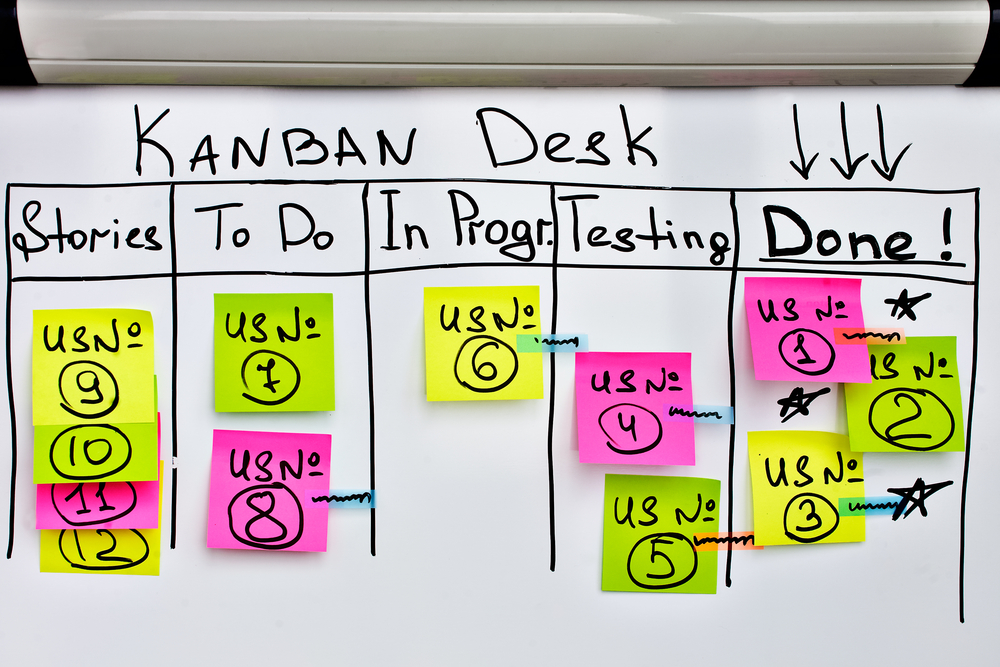Waffle.io was launched in 2013 by a group of five interns working for a company called Rally Software. The team had been asked to build a scrum tool around a GitHub bug tracker called “Issues”. In six years, their product would grow into a free online project management tool employed by thousands of developers using GitHub.
In March 2019, Waffle.io announced that it would be shutting down in two months. We took some time to find out what happened to the project management tool following its six-year run. We also identify available alternative project management tools that integrate tightly with GitHub.
The History of Waffle.io
The story of Waffle.io started in the summer of 2013 when a group of five interns had just begun at Rally Software, in Boulder, Colorado. Under the guidance of their mentors, Andrew Homeyer and Todd Hooper, the team received copies of The Lean Startup, a book about a scientific approach to product development published by Eric Ries in 2011.
As soon as they received their copies of The Lean Startup, the team was immediately given a challenge: Utilize the processes described in the book to develop a product. The group fondly named itself the Innovation Island since it sat on an island of desks at Riley Software.
With a little guidance and much creative freedom, the team set out to build a product that would tackle some of the more pressing GitHub Issues (Source). GitHub is a US-based company that provides hosted source code management for software development. Most projects that involve software development have a bug tracker. The bug tracker for GitHub is called Issues.
When Waffle.io was developed, GitHub had become the preferred work platform for developers around the world. By hosting software code and enabling collaborators to review and work together, the platform empowered development teams of all sizes to create great products (Source).
It looks like Waffle.io solved the challenges of both project managers and teams. Project managers often complain that team members are not always excited about the project management tools they offer. On the other hand, project teams complain that navigating project management tools makes life complicated. This was the backdrop of Waffle.io as it provided a project management tool that allowed development teams to plan, organize, and keep track of their projects in real-time on the GitHub platform (Source).
Problems Solved By Waffle.io
The primary target market for Waffle.io was the development and non-development teams that were already using GitHub (for single developers) or GitHub Enterprise (for companies). Waffle.io used a freemium pricing model: offering basic features for free and charging for the advanced ones.
The free plan included a dashboard (where all projects could be seen at a glance) and a bot (called Wafflebot) that ‘listened’ to prompts in the users’ development workflows and automatically updated their work status. Also included in the free plan were multiple repos within a single view, unlimited public and private repositories of code, and unlimited collaborations.
The paid plans had additional features. Examples of such features include a milestone burn down graph (a presentation of work still to be done versus the time allocated) and a throughput graph (measured in bytes or megabytes and showing the amount of throughput in a server for each second when load tests are done) (Source).
Below are some of the specific solutions that Waffle.io delivered.
Real-time Sync
The first solution was Waffle’s ability to sync with the GitHub platform in real-time, where GitHub Issues and pull requests could sync with all the users’ repositories. It provided a visual tracking tool that displayed a plain list of Issues on a dashboard. The long lists would be transformed into cards on a board to show a big picture of all the project’s tasks at any stage of the development process.
Auto-tracking and Powerful Metrics
Through its assigned internal bot called Wafflebot, Waffle.io could essentially ‘listen’ to all the actions within a project’s workflow. It could then determine when work had begun when it was ready for review, and when it was complete. Therefore, development teams could automatically track work or project tasks and, at the same time, automatically update the status of their tasks. Robust metrics such as throughput graph and milestone burndown graph provided a big picture view that made it possible for development teams to know whether they were on track or not.
Not Everyone’s Cup of Tea?
Not everyone was impressed with Waffle.io. One user, commenting on a development forum, referred to it as “a GitHub-based Kanban board.” The same user says that it was only useful for “a smallish startup.” (A Kanban board is a simple project management tool that uses cards and columns to show all jobs in progress).
Another user commented: “I worked at a small startup that used it, and I didn’t see the point.” The same customer continues: “It was clever in how it provided an alternative interface to GitHub Issues, but to someone already familiar with GitHub, it didn’t make anything easier than just using the normal interface. There are things I hate about GitHub Issues, but this didn’t solve any of them” (Source).
What Then Happened to Waffle.io?
In 2015, Rally Software was acquired by Computer Associates (CA). Broadcom later acquired CA in mid-2018. In March 2019, Waffle.io announced that it would be shutting down. “With a heavy heart, we are announcing today that we will be closing our doors at Waffle on May 16, 2019,” says a message posted on Waffle.io (Source).
The message continues: “Alas, the rationale behind this decision is twofold. First, the direction of the market is leaving less and less space for tools like Waffle. Second, as some of you may know, Waffle was started as an accelerator project with Rally Software Development” (Source).
The announcement then makes it clear that Broadcom did not see an alignment between their strategy and keeping the Waffle project as a standalone product (Source).
Other Project Management Tools Which Integrate With GitHub

Could the demise of Waffle.io indicate that the market no longer needs project management tools that integrate tightly with GitHub? When we look at the competitors in the market, we think that such tools are still relevant. Below, we identify some of them.
ZenHub
Of all the project management collaboration tools, ZenHub says that it is the only one built directly into GitHub. It works from anywhere, that is, within GitHub, via a web browser extension, or as a standalone full-featured web app. It promises a lightweight and straightforward design.
While some users found Waffle.io suitable only for “smallish” projects, ZenHub can handle any project size. Thanks to its list of features that include Multi-Repository Boards and customizable workspaces.
Codetree
Like other competing project management tools, Codetree also allows users to stay fully synchronized to the GitHub platform. However, it adds some powerful features to its overall functionality. These include advanced filtering and sorting, support for multiple repos in one project, saved shortcuts, dependency tracking, and drag and drop prioritization. Codetree also includes powerful filters where users can enter refined queries such as “which Issues are awaiting my response?”
HuBoard
One of the distinct features of HuBoard is the unique design that uses animated gifs, and drag and drop elements. Project managers can assign Issues by dragging users’ avatars onto the respective cards. Users, on the other hand, can prioritize their work by simply dragging the essential Issues to the top. HuBoard will then remind them of the next thing they need to work on.
HuBoard is built using GitHub’s public API and features the ability to drag between milestones. Therefore, users no longer have to spend too much time paging through and checking checkboxes across GitHub’s grid view.
Zube
Zube features a Kanban-style board like many other tools that integrate with GitHub. However, it promises one of the most agile out-of-the-box workflow interfaces.

Even though its Kanban/scrum board seems chiefly designed for developers, Zube features a powerful Issue management tool for team leads. This means that all team members can collaborate on the development tasks even if they were non-developers.
Issue.sh
Issue.sh promises users that their privacy is protected right from the start. It has no access to the users’ code since it doesn’t require any user permissions from the GitHub platform.
The developers of Issue.sh say that their solution is the only project management tool that comes with fine-grained permissions. The idea of fine-grained permissions denotes that each data item has its own access control policy.
On Issue.sh, user data is encrypted with an industry-standard transmission algorithm, both during storage and transmission. Therefore, project managers get a full view of the project’s progress without ever having to worry about the security of their private code.